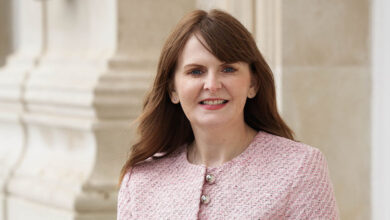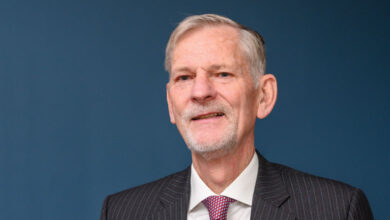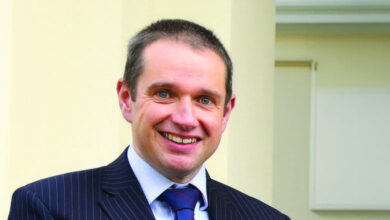Farming and water quality
 Nitrates and phosphates have caused considerable pollution but farmers are helping to control it, Richard Halleron writes.
Nitrates and phosphates have caused considerable pollution but farmers are helping to control it, Richard Halleron writes.
Agriculture is playing its part in improving the quality of our water. Agricultural intensification – including the greater use of animal slurries and chemical fertilisers – has long been associated with a decline in water quality.
The theory is a simple one: soluble chemicals within these manures, such as nitrates and phosphates, can be leached out of the soil by the action of rain, leading to their greater accumulation in our surface and ground waters. Those of a certain age will, no doubt, recall the news stories concerning algal blooms on Lough Neagh, which were so common during the very hot summers of the 1970s.
Research confirmed that an increased level of phosphate in the water was the key driver in bringing these about. And while agriculture was identified as part of the problem, it’s also worth pointing out that both industrial and domestic sewage effluents of the time were also significantly contributing to the increased phosphate loading of Lough Neagh and a host of other fresh water resources.
Flash forward twenty years and the winds of change were fast blowing through the corridors of Brussels. New thinking had been brought to bear to how Europe should support agriculture, with farmers increasingly regarded as both producers of food and custodians of the environment.
One direct consequence of this was the introduction of the Nitrates Directive in 1991. Twelve years later, in 2003, Farm Commissioner Franz Fischler introduced his ground-breaking Common Agricultural Policy reform proposals. In essence, these measures joined up all the pieces regarding the plethora of EU environmental regulations that had been introduced during the previous decade. All of this paved the way for the introduction of the Nitrates Action Programme and Phosphorous regulations here in Northern Ireland.
As a consequence, local farmers have been given clear and specific guidelines on how they must use both organic manures and chemical fertilisers. Specifically, slurry cannot be applied to ground between 15 October and 1 January within the overlying principle that all such activities must be carried out when soil and weather conditions permit. Where chemical fertilisers are concerned, nitrogen cannot be applied between 15 September and 31 January. In addition, chemical phosphate can only be spread on land if a soil test confirms the need for such applications. Maximum application limits have also been set for all fertiliser sources.
These new regulations also brought with them a requirement for farmers to have sufficient slurry and farmyard manure storage facilities on their premises. In 2005, Department of Agriculture and Rural Development introduced the Farm Nutrient Management Scheme. This provided capital grant support, up to a maximum grant of £51,000, towards the cost of building the additional storage required. Almost 4,000 farmers proceeded with a project, at an average grant per farm of some £31,000. In 2007, the programme budget was increased to £144 million, to ensure that all applicants could be funded. Overall, the total grant paid amounted to £121 million, making this the largest capital grant scheme ever run by DARD.
So is all of this investment paying a dividend, in terms of improved water quality? The reality is that it will take a decade or more for the measures introduced to have their full effect. However, the initial indications are positive. In its most recent report to Brussels on this matter, the Department of the Environment indicated that nitrate levels in both ground waters and surface waters are generally low and show either stable or decreasing trends.
In addition, 40 per cent of river water bodies across Northern Ireland are considered to be of high or good trophic status. Phosphorus levels in the majority of river monitoring sites are at levels which indicate a risk of eutrophication but all show either stable or decreasing trends.
But the real winners within this unfolding scenario have been farmers as the introduction of closed periods for the application of slurry and other animal manures has ensured that they get optimal crop responses from these valuable fertiliser sources when applied during the spring and summer months only.





